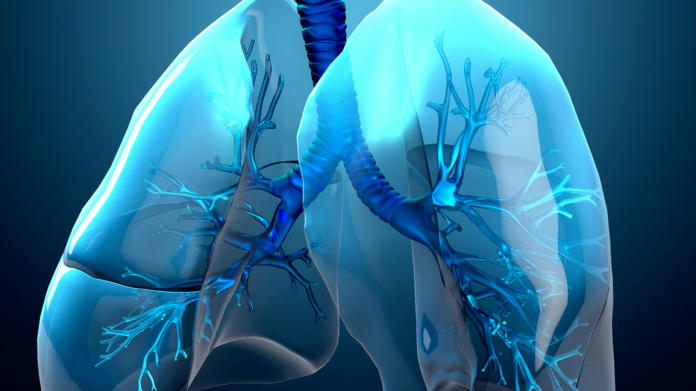Australian researchers are actively seeking volunteers aged 40+ living with severe emphysema for their world-first study of a novel two-stage procedure to treat the devastating lung disease.
The ground-breaking COVE Study is investigating the safety and efficacy of a two-procedure approach in helping those with severe emphysema to breathe easier and improve their quality of life.
According to COVE Study Lead Investigator, and Consultant Thoracic Surgeon at East Melbourne Heart and Lung, Mr Naveed Alam, there remains a significant unmet need in managing severe emphysema, with many continuing to contend with debilitating symptoms and significant limitations to their daily lives.
“Without effective management and treatment, emphysema can impose a significant physical and emotional toll, with up to one in three affected Australians reporting some level of disability due to the lung disease.
“The often debilitating symptoms of severe emphysema, including chronic dyspnoea, persistent respiratory infections, fatigue and frequent exacerbations resulting in hospitalisation, can severely compromise patients’ activities of daily living,” said Mr Alam.
“Moreover, those affected are four-times more likely to experience extremely high levels of psychological distress than those without emphysema, with breathlessness, or the fear of breathlessness, commonly resulting in anxiety and depression.
“However, despite advances in treatment in recent decades, many patients with advanced disease continue to face substantial impacts on their quality of life, with minimal symptom relief. We hope to address this unmet need by investigating a new treatment combination for severe emphysema through the COVE Study,” Mr Alam said.
The researchers are aiming to recruit more than 20 Australians living with severe emphysema for the COVE Study.
“We are urging healthcare professionals Australia-wide to consider any patient aged 40 years or over, who has been diagnosed with severe, or very severe emphysema, for the COVE Study,” said COVE Study Co-Investigator, and Consultant Thoracic Surgeon, East Melbourne Heart and Lung, A/Prof Gavin Wright.
Although there is currently no cure for severe emphysema, effective treatment can slow disease progression, extend life expectancy, and manage symptoms, to improve quality of life.
For those living with the disease, surgical treatment options may include Lung Volume Reduction Surgery (LVRS), bullectomy and/or lung transplantation, which range from removal of damaged sections of the lung to removal and replacement of one, or both lungs. These are irreversible, major surgeries that carry a risk of post-operative infection and require significant recovery time.
In some patients, lung volume reduction may also be achieved without major surgery utilising endobronchial valves (EBVs). EBVs help to reduce hyperinflation of the lung – a feature of severe emphysema, by preventing air from entering the lobe treated with valves while allowing trapped air to escape, thereby improving lung function.
The insertion of EBVs is a minimally invasive procedure involving the placement of the valves in the affected lobes using a flexible catheter, guided by a bronchoscope, thereby avoiding the need for incisions or cutting.
The Global Initiative for Chronic Obstructive Disease (GOLD) recommends the use of endobronchial valves for bronchoscopic lung volume reduction (BLVR) as a standard treatment for people with emphysema or less severe forms of chronic obstructive pulmonary disease (COPD).
“While the evolution of EBVs represents one of the most significant advances in the treatment of severe emphysema over the past two decades, their use is currently limited to a select group of patients,” said A/Prof Wright.
Treatment with EBVs is most effective in those living with severe emphysema with complete lung fissures, who do not have airflow between lobes of the lungs – otherwise known as collateral ventilation.
“The use of EBVs in severe emphysema patients with little to no collateral ventilation has been shown to improve lung function, reduce shortness of breath, and increase their ability to exercise and participate in everyday activities,” said A/Prof Wright.
“Unfortunately, with collateral ventilation occurring in 62% of those living with severe emphysema, this represents a significant portion of Australians living with the disease who are currently unable to access EBV treatment.”
Striving to help address this unmet need, the COVE Study will examine the safety and efficacy of combining two medical procedures, four weeks apart:
- Video Assisted Thoracic Surgery (VATS) Fissure completion – a surgical procedure to completely close off sections in the affected lung (right lung or left lung; generally, the most destructed side), blocking air transfer between the lobes on the treated side and minimising collateral ventilation.
- Insertion of endobronchial valves – a minimally invasive procedure involving the insertion of small, one-way valves, a type of EBV, into the isolated lung lobe.
Six months post-endobronchial valve insertion, the study researchers will assess each participant’s lung function, lung volume, tolerance to exercise, dyspnoea, and Quality of Life (QoL) scores.
“Through improved understanding of the safety and efficacy of combining these two procedures in the COVE Study, we hope to help expand treatment options for Australians living with severe emphysema and collateral ventilation, who have not previously been considered for treatment with EBVs,” A/Prof Wright said.
St Vincent’s Hospital Melbourne and St Vincent’s Private Hospital Melbourne are recruiting for the COVE Study, with study participants required to travel to one of these Melbourne locations.
For patients living with severe emphysema residing beyond Victoria, GPs can refer them to one of the select hospitals in Melbourne, Sydney, Brisbane, Launceston or Adelaide, to help patients determine if they may be considered for participation in the COVE Study.
Clinicians or patients wishing to learn more, or to register their interest in the COVE Study, can visit covestudy.com.au or email info@covestudy.com.au.










